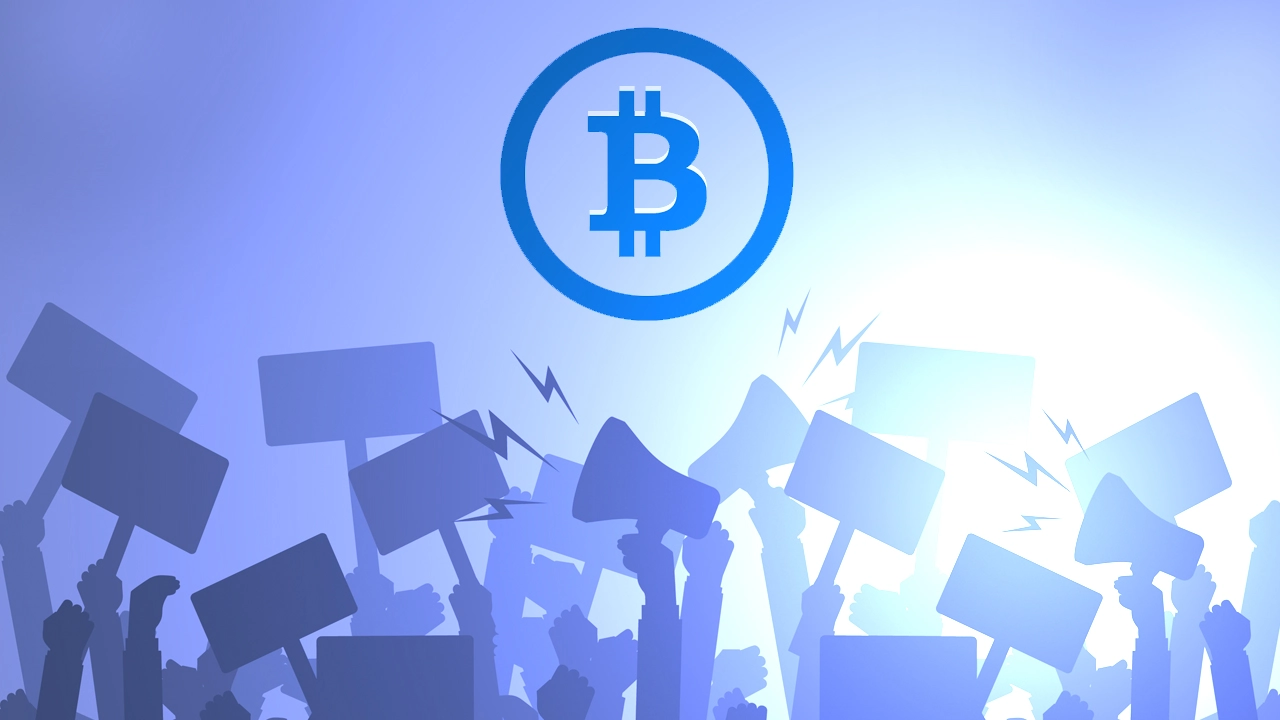David Agullo
Bitcoin Strikes And Protests Rise In EL Salvador Against Cryptocurrency

This week, several Central American countries commemorated their independence. El Salvador, which is celebrating its 200th anniversary, is one of them. Thousands of people took advantage of the holiday to oppose President NayibBukele’s policies, which they claim violate the country’s constitution and centralize power in the populist leader’s hands. It was Bukele’s first and strongest show of dissent since taking office in 2019. It also comes on the heels of a contentious day last week, when El Salvador became the first government to legalize Bitcoin as a form of payment.
Last week, El Salvador became the first country to use the cryptocurrency as legal tender, alongside the US dollar. The move by President NayibBukele was met with a mix of curiosity and concern.
More than 1,000 protesters protested the introduction of bitcoin as legal tender in El Salvador’s capital on Tuesday, despite a rocky initial rollout of facilities to accommodate the digital currency.
Around noon local time, protesters torched a tire and let off fireworks in front of the Supreme Court building, while the government deployed heavily militarized police to the scene.
“This is not a currency that will work for pupusa vendors, bus drivers, or shops,” a San Salvador local opposed to the cryptocurrency’s adoption remarked. Pupusas are a classic Salvadoran corn-based dish.”This is a perfect currency for large investors who wish to speculate with their money.
Volatility: People in the country are afraid of cryptocurrency’s volatility. Even Bitcoin, the most prominent cryptocurrency in the world right now, swings a lot in the market, and if the crypto market goes down, you may lose a lot of money in a short period.
RISKS: It exposes a population with little financial education – for the most part, without an economic safety net – to the fate of the highly volatile cryptocurrency markets.
“The Bitcoin law essentially gambles with two public purses, that of the El Salvador government and the IMF,
Affect On Bitcoin Price: The crypto coin plunged significantly from its peak of $52,000 (Rs 38 lakh) to $44,000 (Rs 32 lakh) in less than 24 hours on September 7-8, losing more than 15%. Since then, it has remained stable at roughly $46,000. (Rs 32.37 lakh).
While the recent surge in Bitcoin’s value has been related to news from El Salvador, the enthusiasm appears to have given way to the reality of the disruption it may create, at least for the time being.
Government Take On It:
The government of Bukele, on the other hand, expects that the adoption of Bitcoin will aid the country in overcoming the economic difficulties brought by the Covid-19 outbreak. Bukele previously stated that trading in Bitcoin will allow more Salvadorans to gain banking access than before and that the cryptocurrency will save the country $400 million in fees charged by banks and financial organizations on money sent home by ex-pats.
Despite its good intentions, the introduction of Bitcoin into the country’s financial system ran into technical difficulties. To raise the value of the digital currency, authorities in El Salvador had to shut down Chivo, the country’s virtual Bitcoin wallet.
Businesses must accept Bitcoin as payment for products and services in El Salvador, according to a new law. Merchants who are unable to accept virtual currency due to technological limitations have been exempted. Across the country, the government has built 200 “Bitcoin ATMs.” It has purchased 400 Bitcoins valued at roughly $20 million (Rs 147 crore) and is giving out $30 (Rs 2,207) in Bitcoin to El Salvadorans who sign up for the Chivo wallet. The government is trying its best to give the best options to their citizens but the risks attached with the complete concept are very wary.
Latest
Bitcoin
09 May 2024
Bitcoin
19 Apr 2024
Bitcoin
16 Jan 2024
Bitcoin
31 Aug 2023
Bitcoin
24 Jun 2023
Bitcoin
24 Jun 2023













